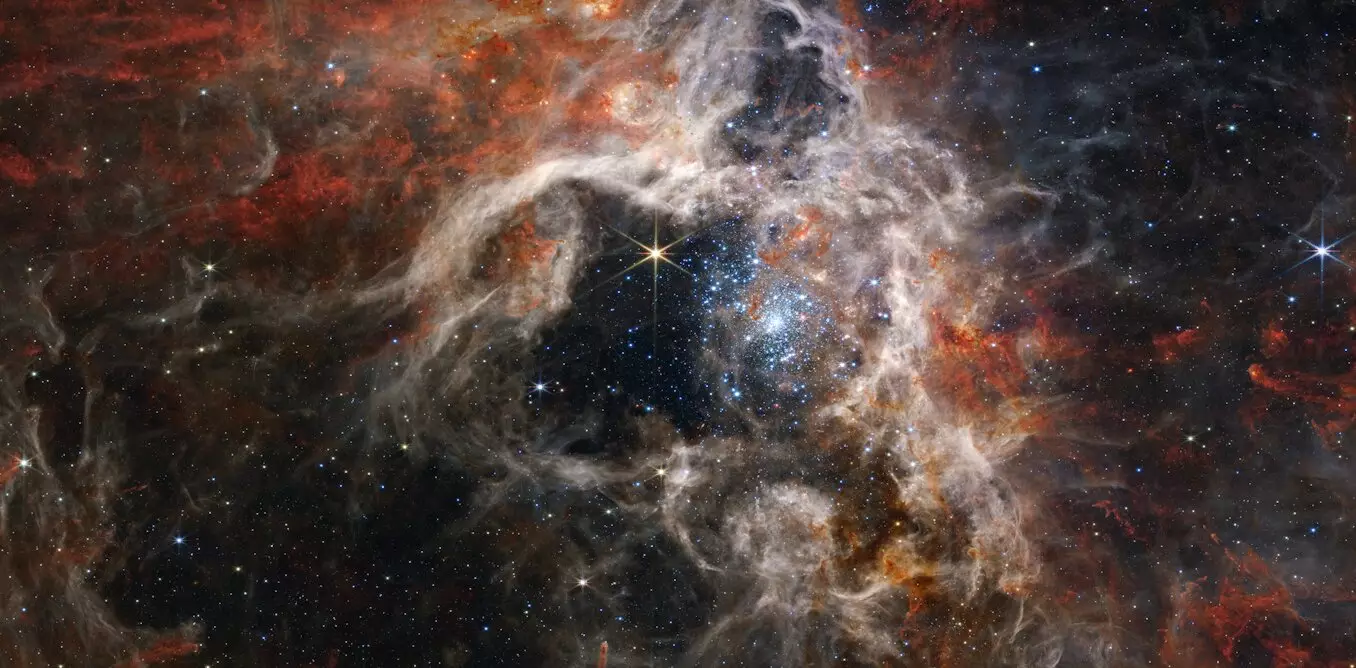The universe, a seemingly stable entity that has existed for 13.7 billion years, is under the threat of instability due to the behavior of a fundamental particle known as the Higgs boson. The Higgs boson plays a crucial role in determining the mass and interactions of all known particles. This is because particle masses are a result of interactions with the Higgs field, a pervasive field that permeates the entire universe. The field is akin to a still water bath, providing uniform properties across all of space, thereby ensuring consistent physics throughout the cosmos.
Recent research has suggested that the Higgs field may not be in its lowest energy state, leaving the potential for a phase transition. A phase transition in the Higgs field could lead to the creation of low-energy bubbles with vastly different physics within them. This could result in significant changes to particle masses and interactions, ultimately altering the fundamental laws of physics. While the possibility of such an event occurring may be remote, recent measurements from the Large Hadron Collider hint at the potential for this transformative phenomenon.
One intriguing aspect explored in new research is the impact of primordial black holes on the stability of the Higgs field. Primordial black holes, which are theorized to have formed in the early universe, could serve as sources of external energy that trigger bubble formation in the Higgs field. These black holes, unlike their stellar counterparts, are believed to be minuscule in mass, with some models predicting their existence shortly after the Big Bang. However, the presence of such black holes could destabilize the Higgs field and lead to catastrophic consequences for the universe.
The Connection to Quantum Mechanics
Quantum mechanics, the theory governing the microscopic realm of particles, introduces the concept of fluctuating energy within the Higgs field. While the spontaneous formation of bubbles in the Higgs field is statistically improbable, the presence of external energy sources like primordial black holes could facilitate this process. The interplay between quantum mechanics and external energy raises questions about the potential triggers for phase transitions in the Higgs field.
Despite the theoretical frameworks and experimental insights presented in current research, there remains much to uncover about the stability of the universe. The presence of primordial black holes and their potential impact on the Higgs field opens up new avenues for exploration in cosmology. The quest to understand the underlying mechanisms that govern the behavior of the Higgs boson and its interactions with external sources of energy remains a fundamental challenge for physicists and cosmologists alike.
The stability of the universe is a topic of both fascination and concern within the scientific community. The delicate balance between the Higgs field and external energy sources such as primordial black holes underscores the complexity of our cosmos. By critically analyzing the implications of these interactions, researchers can shed light on the fundamental principles that govern the universe on both the smallest and largest scales. The quest for knowledge and discovery continues as we strive to unravel the mysteries of the universe and our place within it.


Leave a Reply